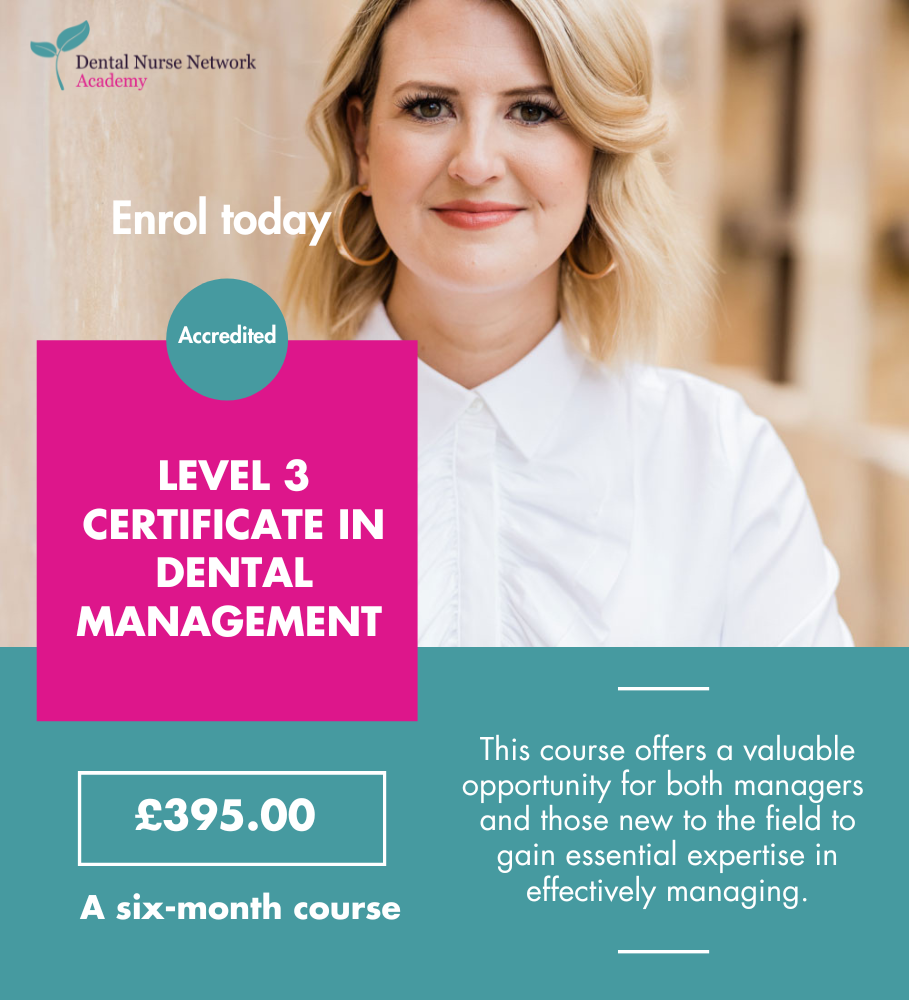 How did you begin as a dental nurse?
How did you begin as a dental nurse?
If I’m honest, it was by accident! I was 19 at the time and I was training in theatre school as a dancer. I saw an advert for a dental nurse position while in between jobs and I thought I could do it through the winter when there was no dancing work.
I never went back! I stayed and got my qualifications. I worked in a few GDP practices in the early ‘90s, and then in ‘92 I started working for the NHS as a community dental nurse and got my national qualification. I did a lot of chair-side work as well as work with children who had special needs in the community dental service.In 2001 I was promoted and became the senior dental nurse to head up infection control dealing with the imminent arrival of HTM01-05. I covered about 15 community dental sites and helped with their infection control. The role ended up growing, and in 2008 I became dental infection control nurse for Liverpool and Sefton, covering all NHS dental practices.
How has taking additional courses helped you to develop your career?
I thought my very first qualification gave me a good foundation for my career. We did a lot of anatomy and things like that, which I think perhaps today’s NVQs miss out on.
After that I did a radiology course at Salford University and my orthodontic nursing training at Liverpool Dental Hospital. Orthodontic therapy was my first love, and I was originally going to go for that before I was promoted to the infection control role.
I’ve also done qualifications in infection control alongside general nurses at Aintree Hospital, as well as a few other things, like courses in adult teaching.
It can be difficult for dental nurses to find courses, but they are out there and I think it’s really worth pursuing them.
How do you see the role of the dental nurse changing in the future?
I think it will go towards skill-mixing – we will have more independence, more qualifications and we will do more with patients.
I think dentists will be looking more at complex cases and those cases that involve communication will be left to us. Often those are the one that take the longest, and it’s definitely a way we can help dentists by reducing their workload.
What do you love about your job?
I love helping practices. I think a lot of them have historically worked very independently, and having a central team can really help them. For example, if a practice rings in and says: “We’ve got a staff member with hand, foot and mouth – what should we do?” we can answer that question. Having a central point for the whole of Liverpool and Sefton is really helpful.
I’ve become quite close to a lot of practices over the years. We’ve become like a little family!
What frustrates you about your job?
Sometimes it’s soul-destroying when you know a practice has put a huge amount of work in for the visit of the CQC, and the people that come around don’t notice and instead nitpick over tiny details. It’s frustrating that they aren’t commended for the work they have done!
What advice would you give to a young dental nurse starting out today?
Do as many courses as you can to find out where your interests lie. And that’s not to take anything away from those who don’t want to. There will always be a need for chair-side nurses – I just think people should find what they’re interested in and go for it.
I think people should know that it is a really good career now. When I first began I thought I’d be sat by a chair forever, but things have changed. Girls – and boys – starting off now are progressing to all kinds of things, even becoming dentists. There’s a lot of opportunity there and it just needs to be taken.

